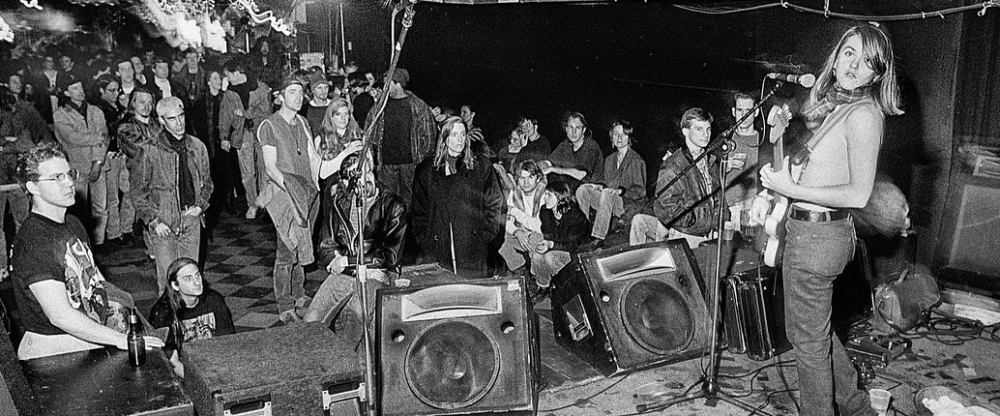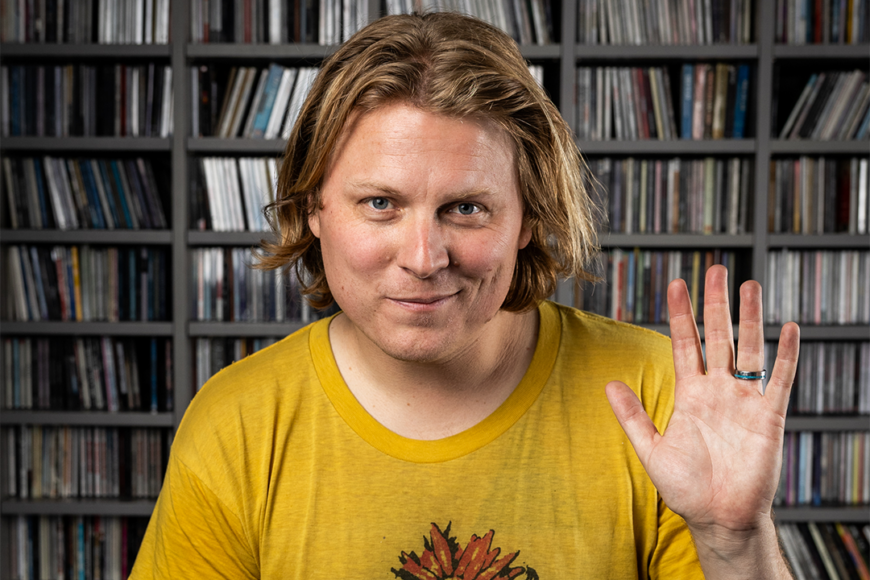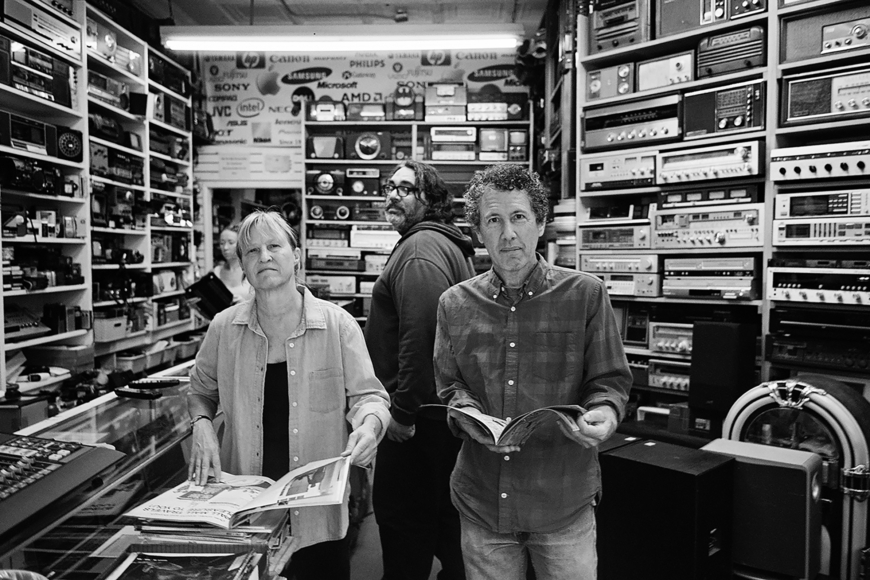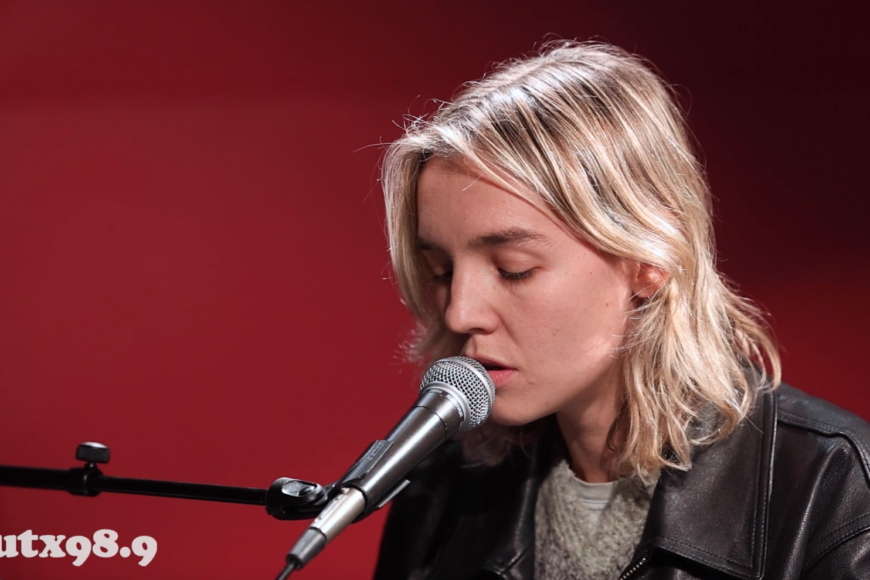The ‘Exile In Guyville’ 30th Anniversary Tour Hits Austin December 1st
By Jeff McCord
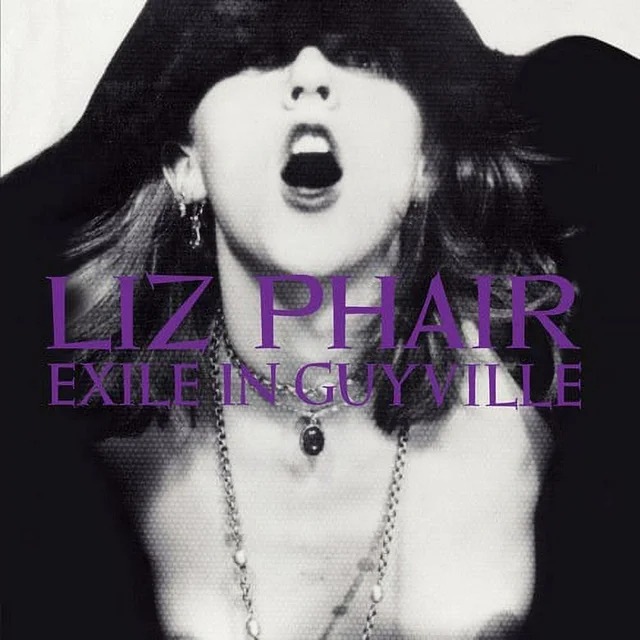
Without knowing Liz Phair’s mindset at the time, it’s almost impossible to understand Exile In Guyville, her audacious and single-minded 1993 indie rock touchstone. The album’s 18 odd vignettes, both feminine and vulnerable, captured everyone’s imagination. Musically and lyrically, no one had heard anything quite like them before.
Thirty years later, Phair, now 56, rolls into Austin on her Exile In Guyville 30th Anniversary Tour. She’ll be performing her double-album debut in its entirety. Chatting with Phair over Zoom, I ask how she reacts to revisiting this time in her past, and how she would write these songs differently today.
She laughs out loud. “Oh, God, am I even capable of doing something like that? Everyone says ‘Do another Guyville.’ The difference is, and this is hard for people to understand, it is a unique moment in anyone’s life between childhood and adulthood responsibilities. You have a couple of years -maybe- to not be part of society as you’ve known it. I just sat around with no job and could get high all day long and write guitar songs. I can’t do that [now], since I’ve had a child or even before that. I can’t recreate those circumstances to make those songs. It’s a real snapshot of a unique period in my life.”
And now she’s plunging back into that world.
“I had to unearth a lot of feelings and a lot of facts about how I was living and how I was thinking. And it’s – I don’t know. Do you ever revisit your youth? It’s – unnerving. For one thing, I can’t believe how much confidence I had back then. It couldn’t have been based on anything. But I had this overweening confidence that I would give anything to have now, you know what I mean? The older you get, the more complex all your problems are and the harder it is to just decide about things. It’s really fascinating to reconnect with that younger version of myself.”
Her enthusiasm, punctuated by frequent nervous laughter, makes it easy to imagine a mid-twenties Phair knocking out these wise-beyond-her-years classics like “Divorce Song” (she hadn’t even been married at this point) alone in her room. Phair has always maintained the songs on Guyville were not about her.
“I think I have a very creative mind that was nurtured. My parents exposed me to a lot of culture. My mother is an art historian and she was a docent at the Institute for a long time. So I had a head start thinking about art as a place that is different from your own life. Honestly, the older I get, the more I think I might not be neurotypical. What I’m dancing around right now is that I don’t think my brain works like other people’s. I was never diagnosed with anything. But I think I do have a brain that works slightly differently.”
Phair’s tales began as fragments, recorded on her Girly-Sound cassettes that she shared with only two musician friends, Tae Won Yu and her Oberlin classmate Chris Brokaw. Yet before that was a thing, her tapes went viral. Copies of her cassettes kept getting made and distributed. One eventually landed at Matador Records. None of this was intentional.
Instead, Phair was quietly focused on creating her song cycle. She has mentioned many times over the years that Exile In Guyville was a track-by-track answer to the Rolling Stones’ Exile On Main Street. I’m not the only one who has had trouble understanding the connection between, say “Mesmerizing” and “Loving Cup”, but Phair insists this was her blueprint.
“It was the absolute mission statement from the get-go. And I took it very seriously. I had a crush on this local rock star, and I never had the guts to say anything about it. We had fooled around a couple of times. But it was something that I kept internally. I didn’t know how to make a record. And someone, an ex-boyfriend jokingly said, ‘What’s the best rock and roll record that’s ever been made?’ I had the cassette (of Exile On Main Street) in my room and I’m like, ‘What about this one?’ And he just sort of mocked me and was like, ‘Yeah, do a double record.’ And I was like, ‘Okay, I fucking will.’”
“I wrote the girl part back into their songs. I sort of made Mick [Jagger] the Avatar for the guy I had a crush on. And then I wrote my parts as having a conversation. So in “Rocks Off”/ “Six Foot One”, he is running into someone he’s obviously had sex with before on the street, and he’s coming from another, doing the walk of shame and clearly he’s just been with someone else and can’t deal with this and he’s living his rockstar life. So I’m the girl in that song looking up at him, going like, ‘Uh huh, uh huh.’ So in all the songs I’m answering back into the girl part they wrote in, and sometimes I’m not arguing with them, sometimes I’m agreeing with them, sometimes I’m saying, ‘Yeah, in my life now I have this too.’ And sometimes I’m saying, ‘Fuck you’. So I just wrote I wrote the girl part.”
Her obsessiveness went deeper.
“I also made all these little weird symbols about the music. Is this a big song on the record? Is it a sort of swirly kind of emotional one, or is it a hard driver? I had like, triangles and squiggles and I would make sure my songs could fit the squiggles and the squares and like, I swear, I’m not kidding, I was so mad when my parents threw out my notes. My family likes to talk about an entire summer where I dragged all these notes with me everywhere I went because I was like, working it out.”
But throughout all this, Phair kept her project a virtual secret.
“I would hunch over an [unamplified] electric guitar and just use my ear to hear what I was playing. And I would sing super, super quietly. I didn’t want anyone to hear me. A lot of the complex chords and the weird sounds, which Brad Wood (the album’s eventual producer), really loved was because I was not fully hearing what I was playing. So strange chords sounded good to me. Basically,” she laughs, “I did not want to be heard!”
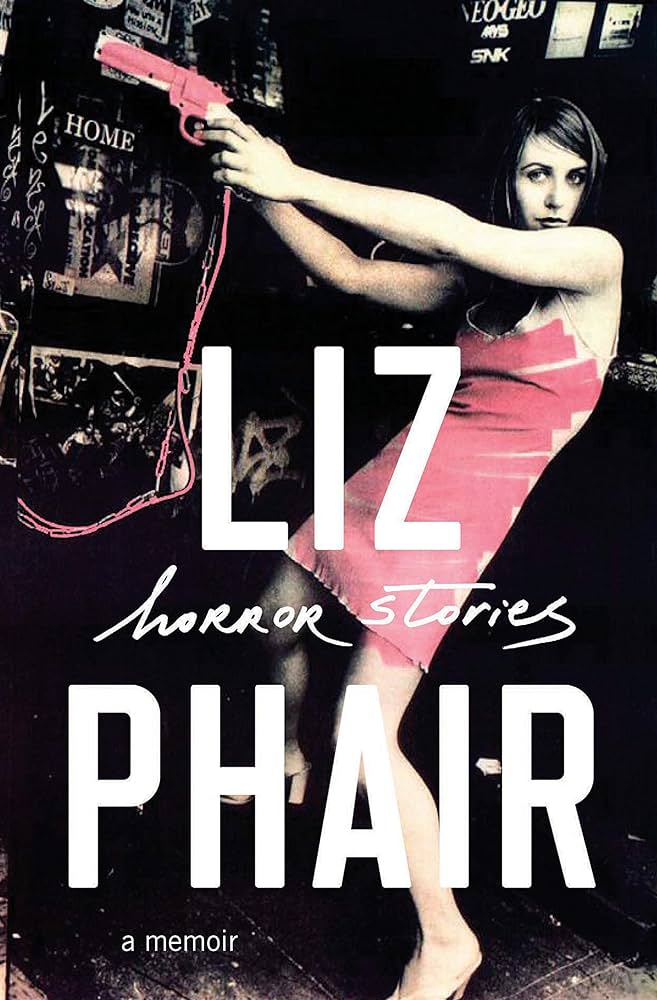
Matador Records came calling and changed all that. Upon its release, Guyville thrilled listeners and was universally hailed as a classic. Phair was on her way to stardom. Her subsequent career has not been without its ups and downs. When she signed to Capitol Records in the early 2000s and pushed in a more commercial direction, critics and some fans turned on her. But she pressed on and returned to her rock beginnings.
Her engaging and brutally honest 2019 memoir, “Horror Stories” was widely acclaimed. 2021’s Soberish reunited her with Guyville producer Brad Wood. Around that same time, Matador reissued Guyville in a box set that included her early Girly-Sound material. All this set the stage for the anniversary tour.
Like the album itself, Phair is staging an ambitious show.
“I saw this small production called ‘Kansas City Choir Boy’. It was so moving to me and I felt like they’d introduced a new language. I’m working with the director of that show. So there is going to be a visual component, a theatricality to this [tour] that is new for me. I hope the visuals will engage the audience in the experience of what I was thinking when I was writing it, or the world I was living in, what it’s like to be a young woman in a guy’s world trying to hold your own, but also trying to be female, trying to be different than just one of the guys.”
“It’s a little nostalgic, but also kind of disconcerting because I’m such a different person now. I feel incredibly grateful for this record because I think it anchored me to a 30-year career that I wouldn’t have had otherwise, which has afforded me incredible life experiences. I see this as a privilege now, although it absolutely felt like a curse when I was starting out. I can promise you that. If you’d asked me back then if I ever wanted to get up on stage in front of people, that was the absolute last thing I wanted to do. To be able to confront one of your deepest fears and overcome it, I consider myself incredibly lucky.”
